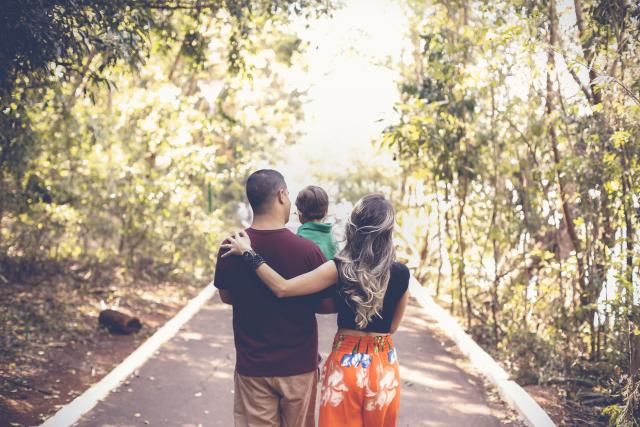The term ‘mindfulness’ has become a real buzz word, tossed into every article you read about self-care and health issues. Even outside the medical world, the mindful approach is being incorporated into all kinds of fields like psychology, neuroscience, healthcare, education, and business leadership. Its origins, however, lie in ancient meditative practices, even though this current incarnation of the practice exploded in the 1990s.
The practice of something like mindful parenting is the convergence of western empirical scientific thinking, combined with the empiricism of meditative or consciousness disciplines – which is to say, this process is a blending of the sacred and the secular. It runs the risk of these two important fields being tainted by a ‘fashionable’ slant on mindfulness. It should not be treated as a trend but a serious, scientific approach, with its roots in ancient tradition.
With that said, it is believed that there are many benefits to the practice of mindful parenting. According to NCT.org, it can improve understanding, respect, emotional awareness, compassion, listening and non-judgmental acceptance. It is designed to reduce stress in the parental-child relationship, by putting on the pause button when a situation becomes stressful for both of you. It claims to help you to assess what’s really happening behind the temper tantrum, recognise signs of discomfort or distress and avoid the blame game.
Self-judgement also plays a huge role in this process. Our assessment of ourselves must change in this journey too, as when we feel judged, we do not react compassionately to those around us or to ourselves.
‘When you constantly mark yourself out of ten, this can make a big difference to how you behave around your child and parent them. Parents who believe they are doing OK at this parenting lark have been seen to interact with their kids in a way that helps their development.’
Is it for everyone? This approach requires patience. As NCT says, you don’t have to become a Buddhist monk to practice this technique, but it is a long process and a mindset change. If you feel you are overwhelmed constantly, it might be worth exploring.
Headspace defines mindful parenting as ‘being fully present with [your] children, free from distractions or judgment, and with a soft and open mind’.The approach is moment by moment, not stressing about the next step, or rushing on to the next thing. It allows you to live fully in that one moment of say, cleaning up together after play time – not rushing them through the task and stressing both yourself and the child in order to move on to the next task. When in conflict with the child, actively listen to their viewpoint on the situation, rather than speaking over them or responding without listening to them. Headspace says that when doing this, we give the relationship the opportunity to be responsive and productive, and less overwhelmed.
This approach is to bring clarity and calm to the relationship and requires a lot of mental and relationship work. It is something you and your partner must agree on, discuss, figure out HOW you’re going to do it. If done right, it can also train your children to manage conflicts in a respectful and calm way, working towards solutions rather than aimlessly sparring back and forth.
A study headed up by the University of Vermont examined 615 parents and their children, spread across different age groups (3-7 years, 8-12 years and 13-17 years) to asses the effects of mindful parenting.
‘Consistent findings across all three developmental stages indicated that higher levels of parent dispositional mindfulness were indirectly related to lower levels of youth internalizing and externalizing problems through higher levels of mindful parenting and lower levels of negative parenting practices. Replication of these findings across families with children at different developmental stages lends support to the generalizability of the model.’
Essentially, mindful parenting in this case led to a decrease in anxiety, depression, and ‘acting out’. This is, however, just one study, and this is a topic that is a personal decision which requires much research, practice and discussion.









